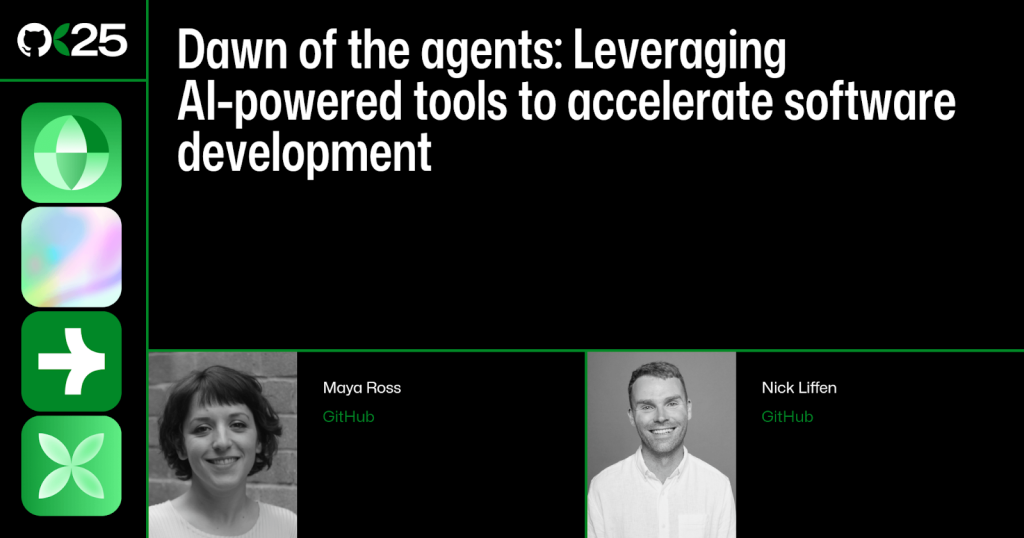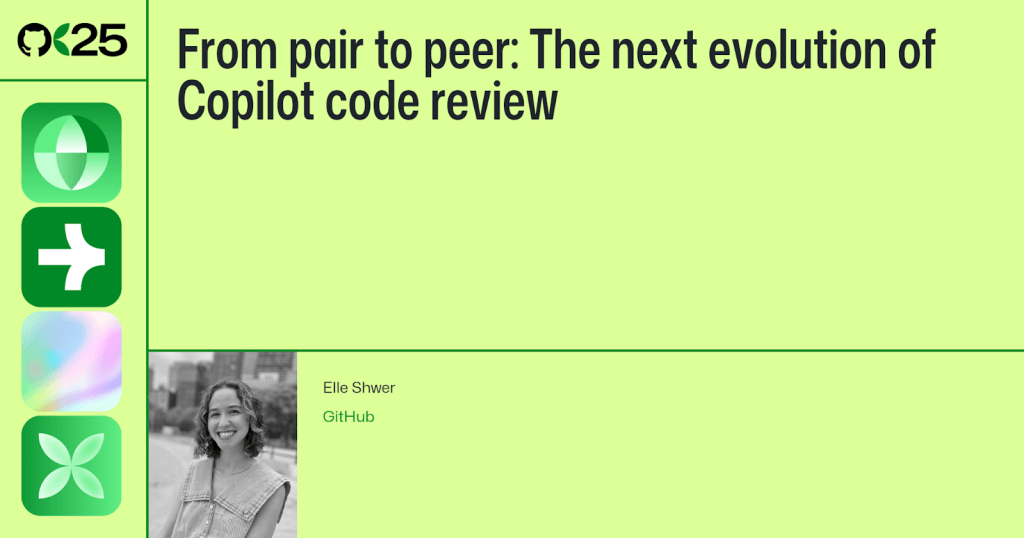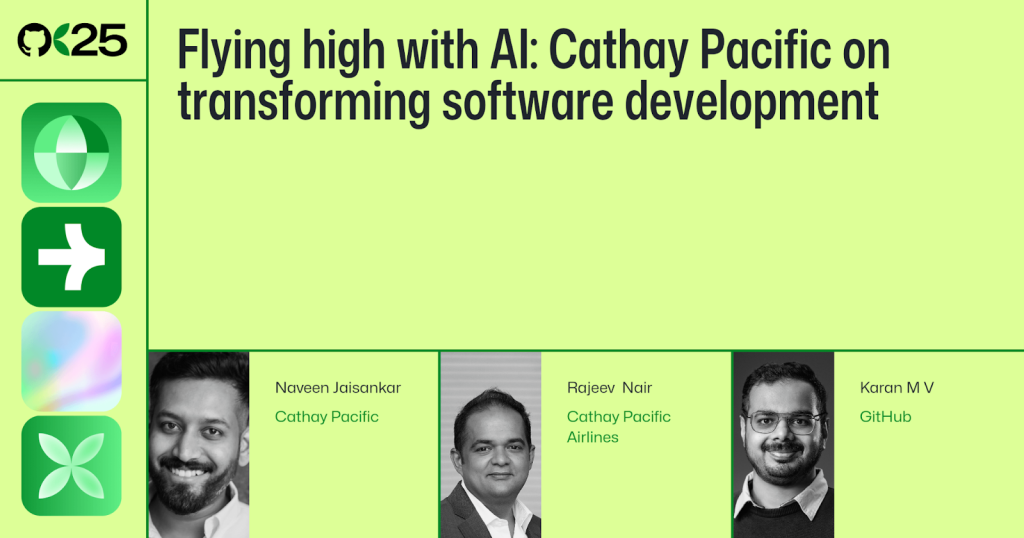Gwen Davis
Gwen Davis is a senior content strategist at GitHub, where she writes about developer experience, AI-powered workflows, and career growth in tech.
| Editor’s note: This piece was originally published in our LinkedIn newsletter, Branching Out_ (this GitHub Blog version adds more detail). Sign up for the newsletter for more career-focused content > |
The shift: Robots are coming for your boilerplate code. In fact, AI is on track to write 95% of code within the next 5 years.
The opportunity: Robots are terrible at creativity, collaboration, and big-picture thinking. Which, conveniently, is where the future of development is headed.
We’re entering a new AI-powered era. And the impact is massive: GitHub research projects that by 2030, AI-driven productivity gains could add the equivalent of 15 million more effective developers to the global workforce, unlocking more than $1.5 trillion in economic value.
Knowing how to code will still be important, but your main job as developer will be that of orchestrator, strategist, and collaborator. Your value won’t just hinge on typing speed, but increasingly on your ability to solve, design, and inspire. And while the job market is shifting and opportunities can feel uncertain, these are the kinds of skills that can help you stay resilient and stand out.
“Developers’ roles are evolving from manual coders to orchestrators of AI-driven development ecosystems,” says Ketai Qiu, co-author of From today’s code to tomorrow’s symphony: The AI transformation of developer’s routine by 2030. “The future of programming will be less about writing lines of code and more about defining intent, guiding AI systems, and integrating their outputs into coherent solutions.”
So what does this shift mean for you, and how can you start building these new skills into your workflow today? Let’s dive in:
AI is fast, but it isn’t psychic. It can produce code in seconds, yet without understanding what you’re actually building, the results can feel vague or off-target. That’s where context comes in. By giving Copilot the right signals—your intent, your data, and the purpose behind a task—you steer its suggestions toward meaningful, useful output.
Enter GitHub Copilot Spaces: a dedicated environment where you and your team can shape Copilot’s responses with the context that matters most. Spaces let you upload sources (files, repositories, instructions), set intent, and collaborate so Copilot’s answers are accurate, relevant, and tailored to your work. Instead of getting one-size-fits-all suggestions, you get outputs designed for your actual codebase, team practices, and business goals.
✅ Here’s how to set up a GitHub Space:
Step 1: Go to github.com/copilot/spaces and create a new space.
Step 2: Upload context, anything from documentation and sample files to entire repositories.
Step 3: Start a chat: ask Copilot questions that draw on the sources you’ve added. For example, if you simply ask “Generate a SQL query to find active users,” Copilot will guess. If you’ve already shared your schema, the query it produces will be tuned to your actual tables and fields.
| 💡 Tip: Teams can open organization-wide spaces so everyone benefits from the same shared context instead of working in silos. |
Mastering context won’t solve every challenge, but it signals that you know how to direct AI systems, which is an increasingly valued ability in modern development.
🎤 This focus on context isn’t just theory. It’s actually front and center at GitHub Universe 2025 (October 28–29 in San Francisco and online) this year. Join us at the conference to explore:

Explore the full Universe agenda 👉
AI can generate code, but it can’t replace human insight, creativity, or collaboration. The developers who thrive will be those who blend machine efficiency with human judgment and teamwork. Orchestration will be a primary competitive advantage.
That’s where GitHub Copilot code review comes in, an AI tool that scans pull requests, highlights issues, and suggests improvements automatically, helping teams ship faster with fewer bottlenecks.
✅ Try it today:
Step 1: Request a Copilot review: open an existing pull request and add Copilot as a reviewer.
Step 2: Review Copilot’s feedback: after a moment, it will add comments, suggestions, and inline changes you can commit directly.
Step 3: Refine the review: re-review, thumbs-up/down feedback, or add a .github/copilot-instructions.md file for custom rules.
| 💡 Tip: Once Copilot provides feedback, you can enable automatic reviews so it checks every pull request by default. Don’t worry, Copilot won’t block merges unless you decide to. |
🎤 And if you want to see how global teams are already scaling collaboration with Copilot, you’ll find it at Universe. Join us to attend sessions like:

Plan your Universe experience 👉
The half-life of technical skills has always been a reality. But in an AI-powered world, it’s getting shorter. What you know today won’t be enough tomorrow, which is why continuous learning is the key to staying ahead.
✅ Here’s a practical roadmap to grow your AI skill set right inside GitHub (adapted from our blog, Vibe coding: Your roadmap to becoming an AI developer):
Step 1: Learn essential languages and frameworks: start with Python, then expand into Java and C++. Explore frameworks like TensorFlow, PyTorch, and Scikit-learn.
Step 2: Master machine learning basics: deep learning, NLP, and computer vision. Try open source repositories like Awesome Machine Learning, NLTK, or OpenCV.
Step 3: Showcase your skills on GitHub: organize your repository, publish READMEs, contribute to open source, and build a standout profile on GitHub Pages.
Step 4: Get certified in GitHub Copilot: learn the full toolkit, prepare with docs and projects, and earn your Copilot certification badge.
| 💡 Tip: Don’t just learn AI skills in isolation, show your work. Every repository, contribution, or badge signals to employers that you’re keeping pace with the AI era. |
Continuous learning can’t eliminate uncertainty in a shifting job market. But it gives you the best shot at adapting, whether that means advancing in your current role or pivoting into adjacent paths like developer advocacy, architecture, or tooling.
🎤 Staying ahead means investing in continuous learning. And at Universe, you’ll hear directly from the leaders shaping how software gets built. Highlights include:

Join us at Universe, where context, collaboration, and creativity come together. See what’s next, and be part of the community that’s building it. You’ll leave with insights, tools, and connections you can put to work right away.


Think of Continuous AI as background agents that operate in your repository for tasks that require reasoning.

Claude by Anthropic and OpenAI Codex are now available in public preview on GitHub and VS Code with a Copilot Pro+ or Copilot Enterprise subscription. Here’s what you need to know and how to get started today.

What languages are growing fastest, and why? What about the projects that people are interested in the most? Where are new developers cutting their teeth? Let’s take a look at Octoverse data to find out.